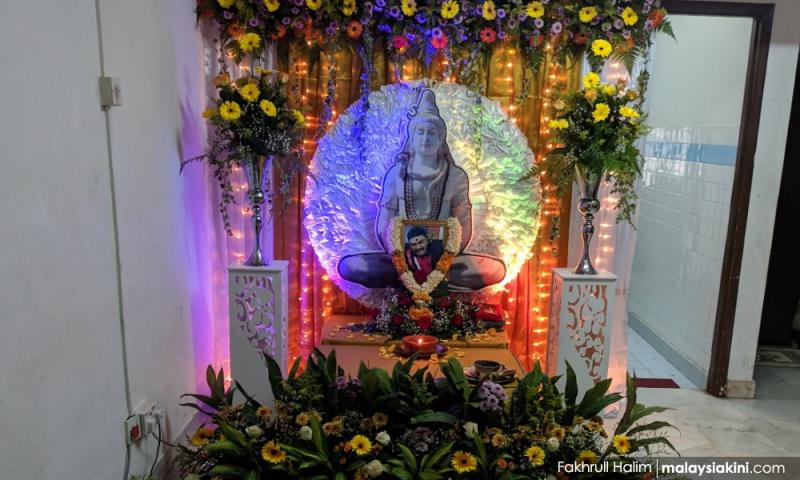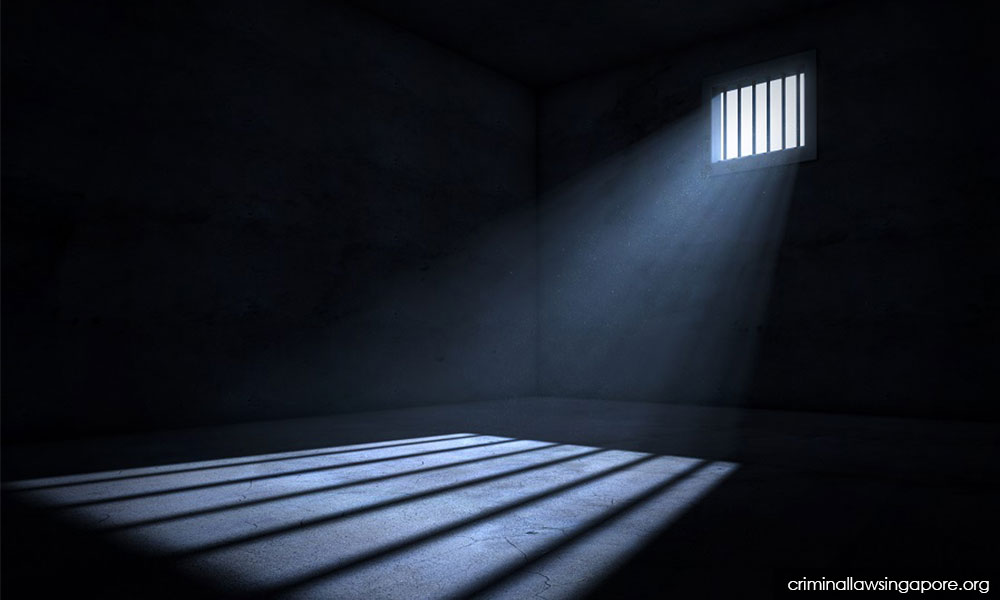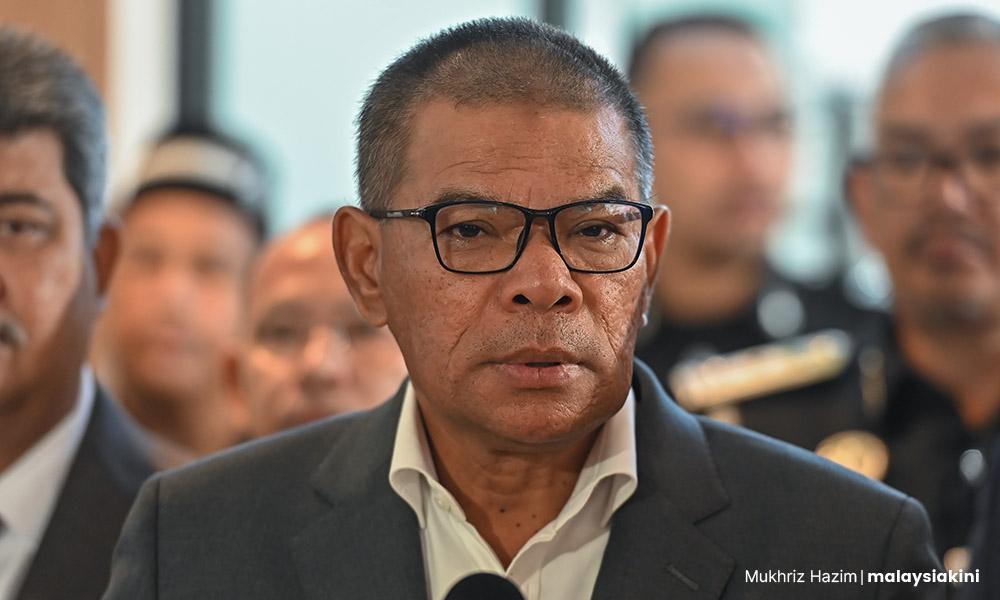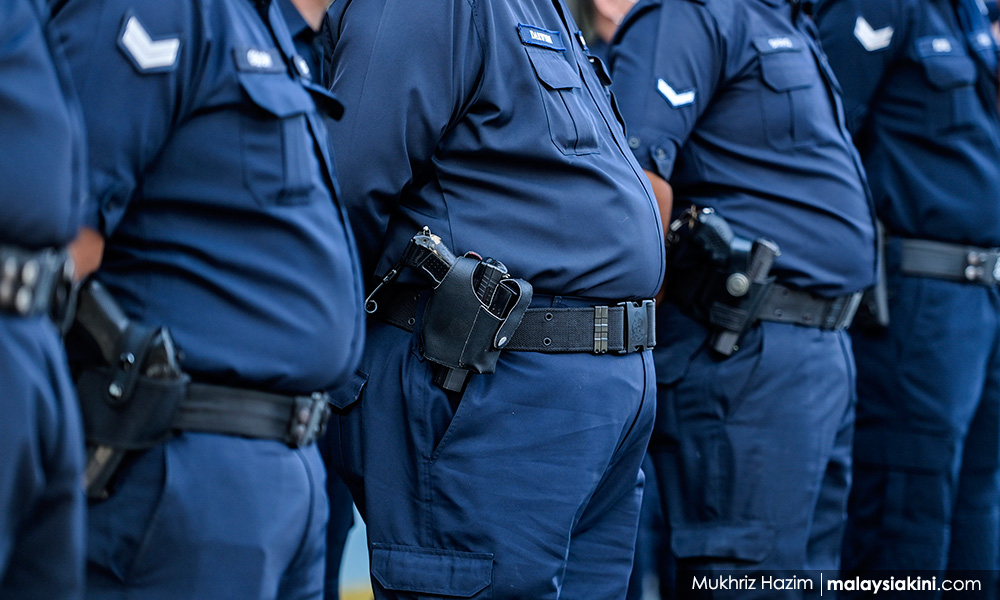

S Thayaparan
Published: Feb 29, 2024
“I was badly abused and assaulted to near death the night I was arrested.”
COMMENT | The death in custody of A Ganapathy will not be remembered by a mega rally or the spectacle of political operatives swooping around like buzzards in a funeral procession but with a shrug by an apathetic public, political class and the reality that there will never be any kind of reform of the state security apparatus.
Prime Minister Anwar Ibrahim has publicly claimed that he was abused and assaulted to near death the night he was arrested so it is not as if the political elites in this country have no idea what is going on in the shadows of police lockups.
Does anyone remember A Kugan? The Kugan case, like most flashpoints when it comes to the police or any of the enforcement branches of the state, reveals simmering race and class tensions.
Some people would be familiar with the gruesome post-mortem pictures of Kugan but to me what is even more sinister was the attempted cover-up.
If his family didn't barge into the mortuary, the truth or the inkling of it would most probably been cremated or buried. The family could not even grieve in peace with mourners being arrested during the funeral.
The lies or misconduct of the first pathologist (which only warranted a reprimand) seemed like an apathetic shrug from the state as if Kugan’s murder did not even warrant a sophisticated cover-up.
And because of the propaganda for some, Kugan will always remain the “suspected luxury car thief” who died in custody even though the ex-cop who killed him received three years in jail and had to pay the family a reduced (after appeal) amount.
Deaths and torture that occur in prisons and immigration detention camps are met with a raised eyebrow by the public, arrogant indifference by the state security apparatus and of course deflections by the political class.
Published: Feb 29, 2024
“I was badly abused and assaulted to near death the night I was arrested.”
– Prime Minister Anwar Ibrahim recalling the night
he was arrested to CNN’s Christiane Amanpour
COMMENT | The death in custody of A Ganapathy will not be remembered by a mega rally or the spectacle of political operatives swooping around like buzzards in a funeral procession but with a shrug by an apathetic public, political class and the reality that there will never be any kind of reform of the state security apparatus.
Prime Minister Anwar Ibrahim has publicly claimed that he was abused and assaulted to near death the night he was arrested so it is not as if the political elites in this country have no idea what is going on in the shadows of police lockups.
Does anyone remember A Kugan? The Kugan case, like most flashpoints when it comes to the police or any of the enforcement branches of the state, reveals simmering race and class tensions.
Some people would be familiar with the gruesome post-mortem pictures of Kugan but to me what is even more sinister was the attempted cover-up.
If his family didn't barge into the mortuary, the truth or the inkling of it would most probably been cremated or buried. The family could not even grieve in peace with mourners being arrested during the funeral.
The lies or misconduct of the first pathologist (which only warranted a reprimand) seemed like an apathetic shrug from the state as if Kugan’s murder did not even warrant a sophisticated cover-up.
And because of the propaganda for some, Kugan will always remain the “suspected luxury car thief” who died in custody even though the ex-cop who killed him received three years in jail and had to pay the family a reduced (after appeal) amount.
Deaths and torture that occur in prisons and immigration detention camps are met with a raised eyebrow by the public, arrogant indifference by the state security apparatus and of course deflections by the political class.

Remember in the case of N Dhamendran who also died in custody, what did the home minister at the time, Ahmad Zahid Hamidi, say in that case? “So, to blame the entire police force as a form of protest is not fair.”
READ MORE: Death Behind Bars: The forgotten faces who succumbed to brutality
The late Irene Fernandez, who spent decades and at great personal cost exposing the underbelly of our criminal justice system asked: "Why is there so much resistance from the home minister and prime minister to investigate these cases independently, and to hold those responsible for these deaths accountable?
“Are they afraid that an independent and transparent police commission will open up a Pandora's Box?"
In Ganapathy’s case, the cops were found to be negligent and what is the Madani state going to do about this? What is the government led by a leader who has claimed he was nearly beaten to death in police custody going to do about this?
Stickers to save lives…
Do you think stickers will make a difference?
Well, according to Home Minister Saifuddin Nasution Ismail with regard to all these prisoners with medical conditions: "The police are also studying a proposal to place 'hospital or custody' reminder stickers in police vehicles as a reminder to send injured or sick detainees to the hospital for treatment.
"This 'hospital or custody' reminder is practised in the UK."

Home Minister Saifuddin Nasution Ismail
Yes, because we all know how effective stickers are in maintaining oversight and accountability.
Of course, nobody wants to talk about the creation of an Independent Police Complaints and Misconduct Commission (IPCMC), which always comes up whenever someone dies in custody but then is forgotten in the news cycle.
And of course, the ruling regime will side with the state security apparatus when it comes to this issue.
The fears of the rank-and-file are not really centred on the complex web of political patronage but rather on the banal everyday dysfunction of the state security apparatus.
Eight years ago, two siblings detailed the horror they experienced when they were detained by the state security apparatus. You can read about it here along with the feeble attempts by the police higher-ups for the brothers to make a “police report” which they said would be investigated fairly and transparently.
All these cops who allegedly have a problem with an independent body “punishing” them are the kind of cops who believe that working without oversight comes with the badge.
They are also worried that other cops who so far have been compliant to orders that they know are wrong or are just afraid that they would lose their jobs if they do not follow orders, would realise that now there is an independent body watching over them.
And this is what really scares the top brass of the state security apparatus. You see in cases like Ganapathy's, it is the cops lower down on the food chain whose behinds are on the line when it comes to these types of deaths.
Yes, because we all know how effective stickers are in maintaining oversight and accountability.
Of course, nobody wants to talk about the creation of an Independent Police Complaints and Misconduct Commission (IPCMC), which always comes up whenever someone dies in custody but then is forgotten in the news cycle.
And of course, the ruling regime will side with the state security apparatus when it comes to this issue.
The fears of the rank-and-file are not really centred on the complex web of political patronage but rather on the banal everyday dysfunction of the state security apparatus.
Eight years ago, two siblings detailed the horror they experienced when they were detained by the state security apparatus. You can read about it here along with the feeble attempts by the police higher-ups for the brothers to make a “police report” which they said would be investigated fairly and transparently.
All these cops who allegedly have a problem with an independent body “punishing” them are the kind of cops who believe that working without oversight comes with the badge.
They are also worried that other cops who so far have been compliant to orders that they know are wrong or are just afraid that they would lose their jobs if they do not follow orders, would realise that now there is an independent body watching over them.
And this is what really scares the top brass of the state security apparatus. You see in cases like Ganapathy's, it is the cops lower down on the food chain whose behinds are on the line when it comes to these types of deaths.

Once they know that there is an independent body watching their every move, they understand that their bosses cannot cover up their apathy, indifference, lack of professionalism, or even abuse.
The top brass understands that those on the lower end of the totem pole are not simply going to follow orders because they understand that if anything goes sideways, they will be held accountable.
Can you imagine the kind of state security apparatus we would have if the cops were afraid of the sanctions they would get if they did not carry out their duties responsibly?
Can you imagine the kind of police force we would have if the cops understood that the lives under their charge meant something more than just a statistic that most people would probably forget in the next news cycle?
But fear not outraged readers, stickers are on their way.
S THAYAPARAN is Commander (Rtd) of the Royal Malaysian Navy. Fīat jūstitia ruat cælum - “Let justice be done though the heavens fall.”

No comments:
Post a Comment